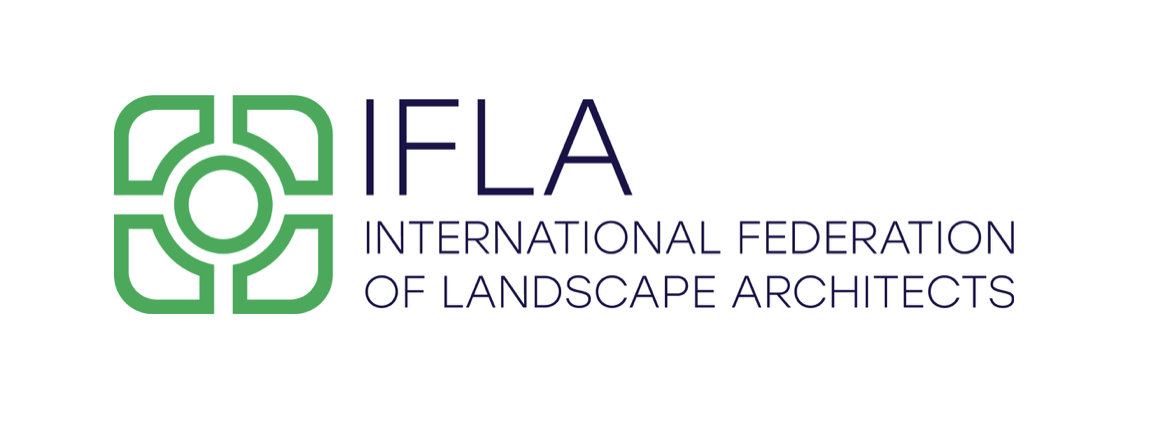Barcelona Biennial - IFLA special mention is for Hope Delft Cape Town project.
Hope, Delft, Cape Town (South Africa), by Tarna Klitzner Landscape Architect (TKLA) was one of three projects given an honourable mention at the 12th Barcelona Biennial. The IFLA Special Mention was commended as a ‘catalyst for social change’ at the award ceremony on Wednesday.
TKLA's approach to this project was to create outdoor hubs of gathering and refuge that reinforce the sense of a safe space.
These landscape 'rooms' are structured around a central movement spine, a predominantly hard landscaped area, collectively evoking the sense of being held and eventually celebrated within a village. Assessment of the finished work A collaborative process was employed to ensure equal priority for the landscape architectural and architectural visions. With CCNIA Architects the meticulously designed outdoor 'rooms' seamlessly blend hard landscaping with human-scale architecture, allowing for effortless movement between a multitude of functional spaces.
The design of the buildings and outdoor spaces give consideration to the site's topographical variations and prevailing winds, creating a multitude of sitting and gathering opportunities across different areas. For the soft landscaping, a thorough study of the site’s endemic vegetation and natural systems was done to determine a plant palette that would thrive in the otherwise harsh and dry Cape Flats landscape.
Additionally, an integrated water harvesting system is employed for irrigation purposes, complemented by a drainage soak-away system within the planting beds and the use of permeable paving in vehicular areas, all contributing to groundwater recharge. In this way, the landscape contributes not only to a sense of well-being for those visiting The Hope Centre, as well as the surrounding community.
The project has resulted in the Delft community having a home away from home, a meaningful space to feel held, safe, and celebrated.
In announcing the award IFLA President Bruno Marques said
‘It is with great honour that we celebrate a project that exemplifies the essence of inclusivity and respect for diversity. This project stands as a testament to the power of design to uplift underrepresented minorities, preserve traditional knowledge, engage the community, and prioritise education—a remarkable convergence of values that lies at the heart of the International Federation of Landscape Architects.
Firstly, let us acknowledge the profound commitment to embracing underrepresented minorities, children, adolescents and their families in situations of poverty, HIV/AIDS and related illnesses.
This project goes beyond the physical landscape; it extends into creating outdoor hubs designed not just as spaces but as symbols of gathering, refuge and hope, offering a sanctuary for those often overlooked or underrepresented in our communities.
This deliberate approach to design ensures that this space becomes a haven—a home away from home—for the community.
Another important aspect to commend is the interdisciplinary approach. The meticulous collaboration between landscape architects and architects, and many other stakeholders, demonstrates a commitment to inclusivity and equal priority for diverse visions.
This fusion of expertise and disciplines enriches the physical environment and becomes a bridge between traditional wisdom and contemporary innovation—a true celebration of the richness that diverse perspectives bring to the table.
Community participation, a cornerstone of successful landscape architecture, is woven into the very fabric of project. The collaborative process employed ensures that the voices of the community are not only heard but actively shape the design.
And of course, what we do so well, the mastery of working with nature, not against it. The thoughtful consideration of topographical variations, prevailing winds, and the study of endemic vegetation reflects a deep respect for the natural and cultural context. The result is not just a physical space but a living, breathing testament to the importance of community engagement in creating meaningful, sustainable environments.
Last but not least, education; a powerful tool to raise awareness and to give hope for a better future. The integrated water harvesting system, permeable paving, and consideration of the site's natural systems contribute to the well-being of those visiting and serve as an educational tool.
The landscape becomes a living classroom, fostering awareness and understanding of sustainable practices. It is a reminder that education is not confined to traditional classrooms; it is an integral part of our built environment, shaping our understanding of the world around us.
It is for these reasons that the International Federation of Landscape Architects is bestowing this honour to the Hope Centre, a transformative endeavour by the Tarna Klitzner Knowledge Landscape Architects (TKLA).
This project is a living example of how landscape architecture, when rooted in principles of inclusivity, traditional practices, community participation, and education, can create spaces that go beyond aesthetics—they become catalysts for positive social change’
The jury assessed that " At HOPE Cape Town, Tarna Klitzner Landscape Architect (TKLA) has designed a space for, as she puts it, “gathering, holding and protecting” children, youth and families affected by HIV, and other social challenges. Working in difficult and sometimes violent urban conditions, TKLA demonstrates landscape architectures’ potential and ambition to change the quality of life for the disadvantaged. Participatory design process is exemplary; local materials (brick from factory) and plants. The jurors were struck by the humility of the project. Even though it is small in scale, it has a big impact”.
See more about the project and the Biennial here.













